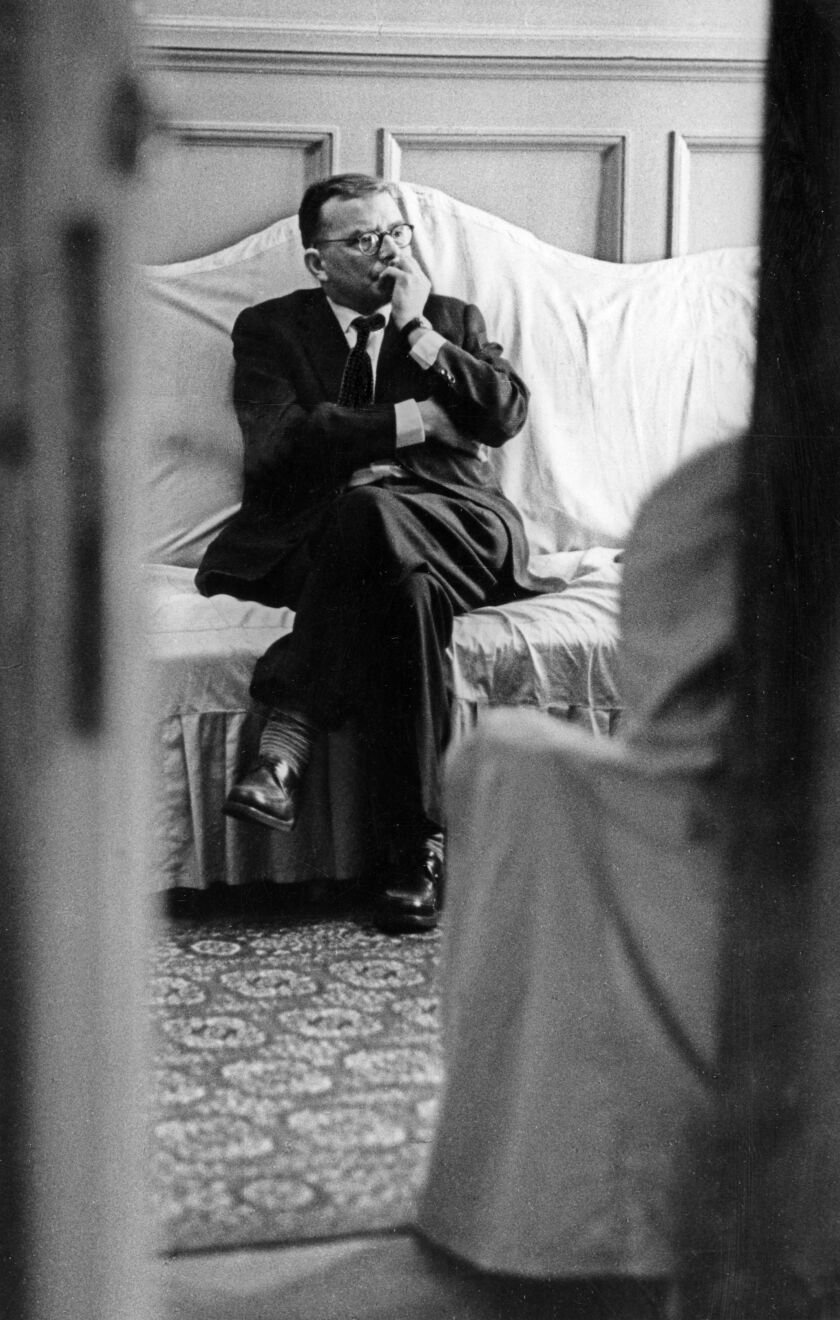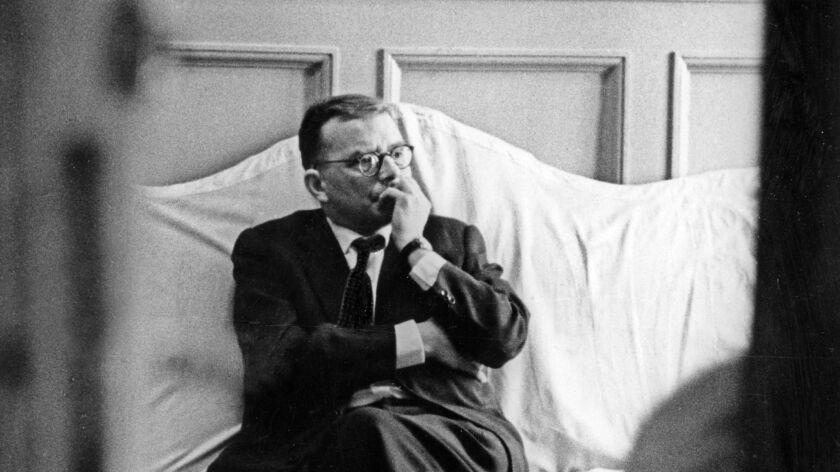
D-S-C-H
What do others really know about life under a dictatorship? The biography and works of Dmitry Shostakovich evoke an oppressive sense of unease, reveal unsettling insights and allow us to listen behind official facades.
Born in St Petersburg in 1906 as a subject of the Tsar, Shostakovich began his musical studies at the age of 13. By the time he graduated in 1925, his home city had been renamed Leningrad and was a vibrant centre of international musical life in the young Soviet Union, marked by an avant-garde spirit. The young Shostakovich quickly chalked up a string of successes in Europe, North America and South America, setting him up for a promising career as a composer.
But then the Stalinist terror began. In 1936, the composer’s opera Lady Macbeth of the Mtsensk District, which had been praised up until then, was the target of a Pravda article that smeared the work as ‘deliberate dissonance […] a confused stream of sounds’. Overnight, Shostakovich felt threatened as an artist and even feared for his personal safety — given that friends of his had already been executed as ‘enemies of the people’, he expected to be arrested at any time, and spent months sleeping fully dressed with a packed suitcase under the bed. He was spared, however, and even survived a second denunciation in 1948. The regime exploited him outside of Russia as a shining example of Soviet art, while subjecting him to continual pressure at home — to the point that he joined the Communist Party in 1960.
Created against this backdrop of coercion, intimidation and disruption, Shostakovich’s oeuvre kept up a never-ending balancing act: music that outwardly conformed to the stylistic and conceptual strictures of Socialist Realism was subverted with double meanings and secret messages. In his strongest works, it remains evident to this day how Shostakovich stayed bold, daring and defiant to the last — and how his music still has much to say to us and our present condition.
Fifty years ago — on 9 August 1975 — Dmitry Shostakovich passed away in Moscow after a long period of illness.
Walter Weidringer
Translation: Sebastian Smallshaw


